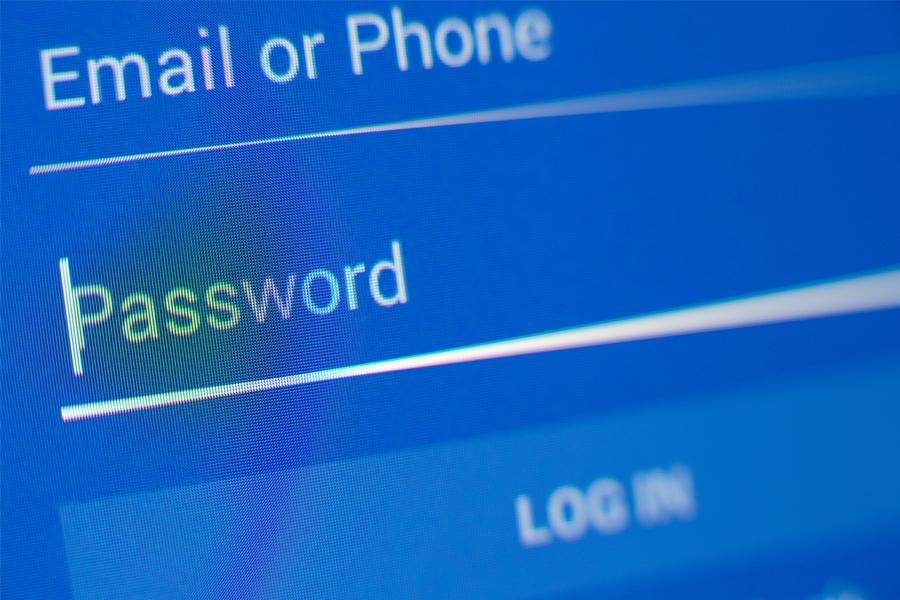Should I Provide My Password to the Police or FBI? : Encryption, Passwords & the Law

According to reports, a recent survey revealed that the average person has over 27 different passwords for their online accounts. With the rise of applications for every area of life (banking, e-mail, social media, chipotle), this should come as no surprise.
Within the justice system, it is becoming quite common for law enforcement, or other opposing parties, to seek to gain access to a password-protected device, drive or account. In the context of a criminal investigation or prosecution, what happens when law enforcement desires to gain access to a password-protected device?
As a criminal defense attorney, I have represented countless individuals who have been the target of an investigation. Oftentimes, before an attorney is involved, law enforcement will confront a suspect and engage in an interview (interrogation). Through investigative techniques, the agents may attempt to solicit pass-codes or passwords from the suspect. (For many reasons I need not go into here, if a person is ever approached by law enforcement in reference to an investigation, I advise that the person contact an attorney prior to engaging in any discussion with the investigators. Please call The Frey Law Firm at (844) 766-3739 if you find yourself in this situation.)
Despite the fact that there is a constitutional right to remain silent, many, if not most, choose to engage in the interrogation with the investigators. Further, it seems that during the ‘interview’, many, if not most, also provide consent for law enforcement to search their devices or access their various accounts. Oftentimes, suspects will also provide passwords to their computers, phones or accounts.
Should I Provide My Password to the Police?
You have a right to remain silent. The 5th Amendment to the United States Constitution provides that no person shall be compelled in any criminal case to be a witness against himself. If you arrive at a point where law enforcement is inquiring about a specific password, it is likely that you have already subjected yourself to the interrogative process. Again, prior to making any statements, my advice is to contact an attorney if you are ever approached by law enforcement regarding an investigation.
If law enforcement is seeking a specific password, they are likely suspicious of the contents of the device, drive or account. They are likely seeking items of evidentiary value. Providing a password or consenting for law enforcement to conduct a search not only provides them access to the contents contained within the protected device, drive or account, but providing the password, in and of itself, can also be used as evidence to demonstrate that you had:
- Knowledge of the device, drive or account at issue;
- Access; and
- Control
In addition to evidence of knowledge, access and control, providing a password can also serve as evidence that you have knowledge, access and control of any of the data or contents contained therein. There may be many unknown or unforeseen consequences in light of the avalanche of information that may be contained within a modern device or online account. Of course, if the case proceeds to the courts, the government may attempt to secure an order from a judge to have a person unlock their device. However, that is a different issue that often involves extensive litigation. For instance, courts have ordered defendants to unlock their phones by providing their fingerprint, and more recently, courts have even ordered defendants to provide passwords to encrypted drives. It is likely these rulings will result in continued appellate litigation and may perhaps reach The Supreme Court of the United States.
What Is on Your Phone?
I have represented clients who have been asked by law enforcement to provide a password in order to access the contents of their smartphone. In many cases, the client is rather confident that there is no evidence of any crime or wrongdoing contained within the device. However, it is important to understand the vast amount of data that can be contained within a smartphone. First, it is not simply a smartphone, modern phones are computers and can often store 100’s of gigabytes worth of data. It is not possible to know all of the information that may be within a person’s phone without a full forensic examination. Whether it is call histories, text messages, emails, cache files, location histories, web browsing history, photos, videos, audio recordings, it is not always apparent what information may be on the device and, more importantly, what information may be relevant to law enforcement. For instance, perhaps a forensic exam of the phone would reveal that the suspect was at a particular location at a specific time. That single piece of metadata may be the most important piece of evidence a prosecutor intends to rely upon in order to convict. Alternatively, perhaps there is a specific account that was logged into on the phone and data within the phone demonstrates a login. This information can then be used to attempt to link a specific account to the suspect. The hypotheticals are nearly infinite. What is apparent is that the typical device can contain a wide variety of information with possible evidentiary value and the user may not even realize it. In fact, the user may be totally innocent of any wrongdoing, but digital evidence may point toward the user as a suspect engaged in criminal activity.
What to Do if the Police or Fbi Requests Your Username or Password?
As with any inquiry by law enforcement, you have a right to remain silent. It is generally advisable to exercise your right to remain silent and contact an experienced criminal defense lawyer for advice. There may be rare instances where providing consent is appropriate. However, it is best to seek the advice of counsel first, prior to making such a significant and generally irreversible decision.
The Frey Law Firm has offices in Florida, North Carolina and Ohio. Attorney Ron Frey is licensed in Florida, North Carolina and Ohio and has also represented clients in matters involving digital evidence in multiple other jurisdictions around the country, via pro hac vice admission.
If you or someone you know has been contacted by law enforcement regarding a username, password, encrypted device, drive or account, please do not hesitate to contact Criminal Defense Attorney Ron Frey and The Frey Law Firm, PLLC for a free initial consultation at (844) 766-3739.





